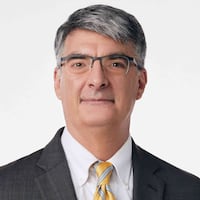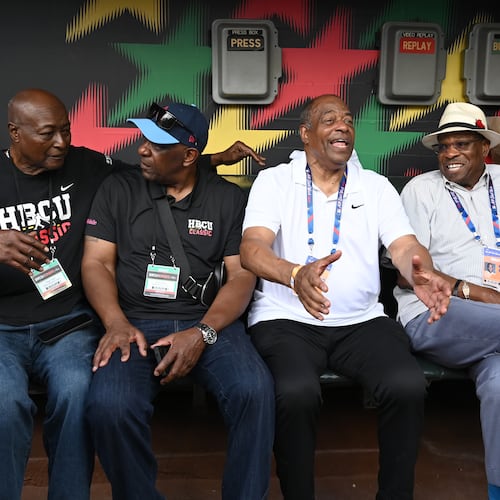Troy Glaus chuckles when he says he had nothing to do with the decision to play first base.
Absolutely nothing.
A free agent last winter, Glaus' had no certain next step to his career, given the unknowns of a surgically repaired right shoulder that had limited him to 14 games in 2009. Enter the Braves, who signed the 2002 World Series MVP to a one-year contract and transferred the career third baseman across the diamond.
“The decision was pretty much made for me,” Glaus said. “I didn’t start calling teams saying, ‘Hey, I’m a first baseman.’ There were no offers to play third. I had two choices. I either played first or I went home and I didn’t want to go home. Not yet. It turns out I play first now. It was essentially that simple.”
With a little coaching and some advice, Glaus said the move has not been difficult. Through the first 53 games, he has a .991 fielding percentage, though his four errors are second-most among NL first basemen. Braves first base coach Glenn Hubbard, who has worked with Glaus, said he showed no fear in making the move and his athletic ability and natural instincts have helped. But Hubbard insists the move is not as easy as many would think.
“I saw [Ken] Caminiti go over there and he was a Gold Glove third baseman. But when he got to first, he looked like he never played the game before,” Hubbard said.
Understanding how to take the first baseman's cutoffs and relays has been the biggest difference from playing third base. His throwing options are limited now. Glaus says if he’s going to throw the ball, “99.9 percent” of the time he’s going to second base.
“The most important thing is getting over to the base early and making sure the infielders are comfortable throwing the ball to you,” said Eric Hinske, another free-agent addition who has played several positions, including first base.
Glaus also sought the advice of former major leaguer Tony Clark. They talked before Glaus reported to spring training and once this season.
“Essentially, everybody has to find their own way of playing,” Glaus said. “I couldn’t play third base like Adrian Beltre and he couldn’t play like me. We are just different. You have to find your own way. I can’t play like Tony. Just the basics is what I was trying to get out of him, the little tricks he might have known over the course of playing so long that may have helped me learn quicker.”
Glaus brought his bat with him as well as a new glove. He struggled through April, when he hit .194 with two home runs and nine RBIs. However, since May 1 he has hit .333 (36-for-108) with seven home runs and 31 RBIs (entering Thursday’s game in Los Angeles). He was named National League player of the month for May on Wednesday and has raised his batting average to .278 with a .456 slugging percentage.
Such good fortune rarely befalls Braves first basemen. Mark Teixeira won player of the month in August 2007, his first month in Atlanta. Fred McGriff was the player of the month in July 1993 but played 10 games with San Diego that month before his fateful trade to Atlanta.
David Justice won the award in August 1990 but started only three games at first that month. Joe Torre played some first base for the 1965 Milwaukee Braves but none in May, when he was player of the month. No other Braves first baseman has been so honored, dating to the award's inception in 1958.
Glaus had played just six games at first in his 12-season major league career. He played 1,336 at third base. Glaus admits the change was a little difficult personally because he still feels he could play the position. However, the chance to continue his career -- and do so with the Braves – made the move easier.
When previously looking for a new team as a free agent, Glaus considered the Braves. But with Chipper Jones anchored at third base, he moved elsewhere. When third base was no longer an option last winter, the Braves became a possible destination.
“After everyone pretty much decided I was going to go to first, this was an opportunity that I really wanted to look at,” Glaus said. “Obviously, they were interested as well and it worked out. ... There was an opportunity to play every day, play on a team that I thought had a very good chance of being very, very successful and it was a chance to play for Bobby [Cox].”
Hubbard said he’s seen Glaus progress quickly. He pointed to several throws he has already dug out of the dirt to save an infielder error.
“It’s getting better,” Glaus said. “It’s a work in progress. I didn’t learn to play third base in a month either. You just have to be out there and see situations and get more comfortable with them where you don’t have to think about it all the time. You just react and have your instincts take over.”
About the Author
Keep Reading
The Latest
Featured



